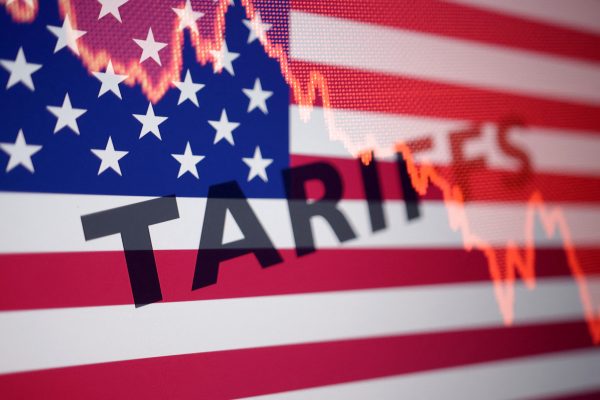
Amid the gloom of spiralling energy costs, inflation, war, and the regular United Nations IPCC reports on the impact of global carbon emissions, shipping’s own endeavours to cut carbon emissions are in sharp focus this Posidonia. Congested ports, broken supply chains, and Covid-related hold-ups more generally, compound the concerns.
Yet the customers of many container lines – large and small – tell a different story. They can’t wait to speed up shipping’s decarbonisation journey and, what’s more, they are prepared to pay for it. Many are already engaged in a series of pilot projects. Others have set up new lobby groups, such as coZEV – Cargo Owners for Zero Emission Vessels – to further the cause by banding together.
Singapore is a recent signatory to the Clydebank Declaration, agreed at COP 26, to which 23 countries have now pledged their commitment. The Clydebank Declaration aims to establish six green corridors where trailblazing shippers, carriers and fuel providers cooperate to cut emissions and try out new sources of ship energy. These six green corridors are likely to multiply fast in the months ahead.
At LR, we believe that having the right metrics to measure is an essential component of the fuel transition process. So we’ve built a model – the First Movers Framework – designed to assess all of the variables in the equation – well-to-wake emissions, fuel production, supply, transport and infrastructure, safety, regulation, technology readiness, financial implications, and societal response.
Putting this model into practice, we have also launched a new project in Asia – the Silk Alliance – based on container trade between Singapore and Hong Kong. It exemplifies the collaboration that is essential in the fuel transition process.

Partners include Mediterranean Shipping Co, Yang Ming, Wärtsilä, Wan Hai, PIL, Keppel and the Asian Development Bank and others. More are set to join.
Two aspects of the Silk Alliance stand out. One, it’s not open-ended. It’s a 12-month project building on our First Movers Framework and a completed pilot study. And two, it’s not limited to new ships and fuels which are not yet available. Keppel’s involvement means that we can address the challenge of retrofits and decarbonising existing vessels.
The container sector should be the primary focus for several reasons. In terms of value, the world’s container trades are estimated to account for about 60% of global seaborne trade. Not only do carriers operate ships on specified routes with fixed schedules, but they also carry cargoes for many different customers.
No single shipper, therefore, bears the brunt of dramatically higher fuel costs. Analysts often use trainers as an example. A 20-foot container has capacity for about 3,000 boxes of trainers. For every additional $100 of freight charged for the box to cover more expensive fuel, that’s three cents per pair. Admittedly, most white goods are larger and take more space. But extra fuel costs would still mean only a few extra dollars.
It is logical to start small, with the Silk Alliance and green corridor projects. But these initiatives will spill over to other routes in other regions and we can scale up fast. The world’s largest liner trade between Asia and Europe offers the most potential of any single route.
by Nick Gross, LR’s Global Container Ships Segment Director
Latest News

New Exposé by Domumento Reveals Nefarious Triangular Link of ‘Black Money’ with New Democracy, Blue Skies, & Truth Team
The latest exposé by the Documentonews.gr news site lays bare what appears to be a surreptitious path of indirect financing of ND through the business sector—transactions that, as widely understood, rarely occur without expectations of reciprocal benefit

PM Meloni Meets Vice President Vance in Rome Signalling Optimism on Ukraine Talks
Meloni emphasized the strength and strategic value of the Italy-U.S. partnership.

Airbnb: Greece’s Short-Term Rentals Dip in March Amid Easter Shift
Data from analytics firm AirDNA shows that average occupancy for short-term rentals dropped to 45% in March, down from 49% the same month last year.

Easter Week in Greece: Holy Friday in Orthodoxy Today
At the Vespers service on Friday evening the image of Christ is removed from the Cross and wrapped in a white cloth

Meloni and Trump Meet in Washington, Vow to Strengthen Western Ties
“I am 100% sure there will be no problems reaching a deal on tariffs with the EU—none whatsoever,” Trump stressed.

ECB Cuts Interest Rates by 25 Basis Points in Expected Move
The ECB’s Governing Council opted to lower the deposit facility rate—the benchmark for signaling monetary policy direction—citing an updated assessment of inflation prospects, the dynamics of underlying inflation, and the strength of monetary policy transmission.

Current Account Deficit Fell by €573.2ml Feb. 2025: BoG
The improvement of Greece’s current account was mainly attributed to a more robust balance of goods and, to a lesser extent, an improved primary income account

Hellenic Food Authority Issues Food Safety Tips for Easter
Food safety tips on how to make sure your lamb has been properly inspected and your eggs stay fresh.

Greek Kiwifruit Exports Smash 200,000-Ton Mark, Setting New Record
According to data by the Association of Greek Fruit, Vegetable and Juice Exporters, Incofruit Hellas, between September 1, 2024, and April 17, 2025, kiwifruit exports increased by 14.2%.

Easter Tourism Boom: Greece Sees 18.3% Surge in Hotel Bookings
Among foreign markets, Israel has emerged as the biggest growth driver, with hotel bookings more than doubling—up 178.5% year-on-year.







![Πλημμύρες: Σημειώθηκαν σε επίπεδα ρεκόρ στην Ευρώπη το 2024 [γράφημα]](https://www.ot.gr/wp-content/uploads/2025/04/FLOOD_HUNGRY-90x90.jpg)





![Airbnb: Πτωτικά κινήθηκε η ζήτηση τον Μάρτιο – Τι δείχνουν τα στοιχεία [γράφημα]](https://www.ot.gr/wp-content/uploads/2024/07/airbnb-gba8e58468_1280-1-90x90.jpg)











![Επιχειρήσεις: Με τι επιτόκιο δανείζονται – Πώς θα ξεκλειδώσει περισσότερη ρευστότητα [γράφημα]](https://www.ot.gr/wp-content/uploads/2025/04/daneia-trapezes-768x432-1-600x338.jpg)














 Αριθμός Πιστοποίησης
Αριθμός Πιστοποίησης